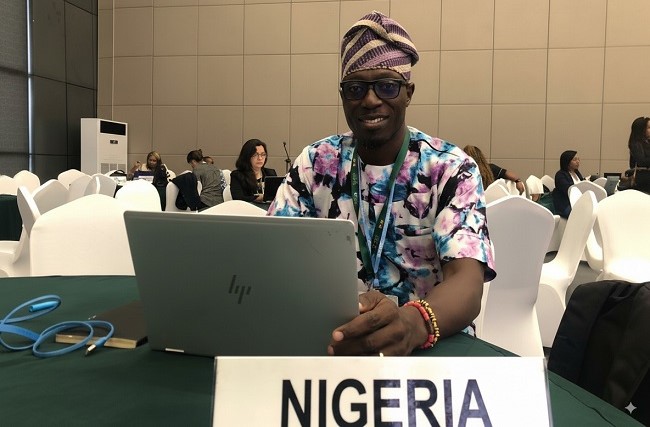At the Implementation Lab on Cities at the ongoing Africa Climate Week in Addis Ababa, I joined the session and we reflected on the fact that cities are always at the frontline of the climate crisis, yet they also hold the solutions. Therefore, to unlock the full potential of cities, we must accelerate scalable, implementable actions across urban areas, backed by proper financing, governance capacity, and inclusive leadership.
It is obvious that cities continue to face a financing gap and weak local government capacity that is limiting their ability to take leadership. The people in informal settlements remain highly vulnerable to climate impacts, underscoring the need for inclusive planning. One thing that became clear to us was that ambition alone is not enough but implementation – this remains the true test of leadership for cities.

Several examples were showcased which include: the Durban’s community-based early warning systems to protect vulnerable residents; Dakar’s Bus Rapid Transit (BRT) solutions reducing emissions and improving mobility; Brazil’s “Adapt-a-City” initiative supporting 600 cities; and, Rwanda and Philippines partnerships fostered through the World Resources Institutes’ (WRI) “bringing national and subnational actors together”.
These examples did not just provide hope, but they also led us to some of the key barriers, such as: Sustainability of financing projects; project preparation gaps that hinder access to climate funds, and catalytic funds that are often misdirected to actors without financial expertise – this trend must be corrected.
For effective cities emancipation, key takeaways from the lab are that stronger collaboration between national and subnational governments is important; co-ownership of financial instruments for long-term resilience is ascertained; development partners aligning catalytic finance with real local needs is guaranteed and more importantly, SMEs and community-led groups are included in financing architecture – this is part of our ongoing dedication at the Society for Planet and Prosperity ensuring that the subnational are given adequate chance and recognition.
Therefore, for Nationally Determined Contributions (NDCs) to drive real change, they must be localised. And because the NDCs are political statement of countries, the subnational governments need to be integrated into the process of developing them and national strategic financial frameworks that will enable them to attract sustainable investment outlined and strengthened.
The Green Climate Fund (GCF) and other global financial instruments must provide clear windows for national–subnational–SME collaboration. This is when climate ambition will translate into meaningful and equitable solutions for cities.
By Gboyega Olorunfemi, Senior Policy Analysts, Society for Planet and Prosperity (SPP), Addis Ababa
